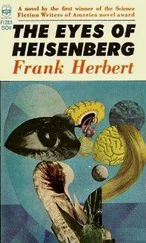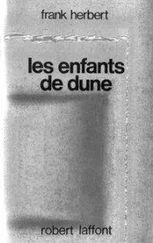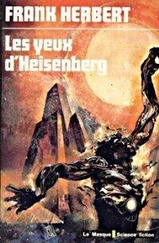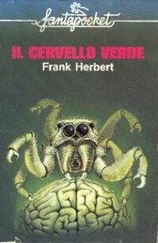“I have been summoned to the Abbod,” Orne said. “I seem to have lost my way.” He waited, alert for any movement from this pair.
“These alleys are a maze,” the priest on the left said. “But you are near.” He turned, throwing a long, hooked nose into profile against the light. “Take this next turning to your right. Follow that way until the third turning on your left. That way ends at the court of the Abbod. You cannot miss it.”
“I am grateful,” Orne murmured.
The priest who had given directions turned back to Orne, said: “We feel your great power, blessed one. Pray, give us your benediction.”
“You have my blessing,” Orne said, and meant it.
The two straightened abruptly, then bowed low. Still bowing, the one on the right asked, “Will you be the new Abbod, blessed one?”
Orne put down a sense of shock, said: “Is it wise to speculate on such matters?”
The pair straightened, backed away. In unison, they said: “We meant no harm. Forgive us!”
“Of course,” Orne said. “Thank you for directing me.”
“A service to one’s fellows is a service to God,” they said.
“May you find wisdom.” There was a curious echoing quality to their voices, one slightly out of step with the other. Again, they bowed, then scurried around Orne and hurried on their way.
Orne stared after them until they were lost in darkness. Curious , he thought. What was that all about? But he knew how to find the Abbod now.
It is not necessarily loving kindness to build a fence around your master. How then can he observe his servants and see that they minister to him without thought of reward? No, my son, a fence is often a work of fear and a container for dust.
—Sayings of the ABBODS
The street of the Abbod proved to be even narrower than the others. Orne strode down it, observing that he could stretch out both arms and touch the opposed walls. They were rough stone illuminated by widely spaced glowglobes of ancient design, all black plasteel curlicues around the globes. A door glowed dimly gray at the end of the alley. The area smelled of newly turned earth and fungus. The plastrete surface underfoot was dishmarked with the passage of feet.
The Abbod’s door proved to be locked.
Orne thought: A locked door? Can all be sweetness and purity on Amel? He stepped back, peered up at the wall. Dark irregularities atop it suggested spikes or a similar barrier. Orne’s thoughts turned cynical: Such civilized appointments on this peaceful planet.
There was violence in this place beyond the ravening of mobs. Narrow alleys were easy to defend. Men who knew how to give sharp orders knew how to give military orders. The trappings of psi and a constant harping on peace betrayed a concern with massive violence.
A concern with war.
Orne glanced back up the alley. It remained empty. He sensed the urgency of the fear within him. A dead-end street could live up to its label. He wanted to leave this place as fast as his feet would take him. This thought brought him no relief from the internal signal. One place was as dangerous as another on this planet. There was no way out of it except to plunge through the danger.
He took a deep breath, shed the priestly robe, swung a hemmed corner up onto the wall, pulled. The robe slipped, caught. He tested it, heard a small tearing sound, but the fabric held. Orne tried his weight on it. The robe stretched, but remained firmly caught atop the wall.
Scrabbling sounds marked his passage up the stones. He avoided sharp spikes at the top, crouched there to survey his surroundings. One window on the top floor of the two-story building opposite him glowed with a dim rose light behind loose draperies. Orne glanced down, saw a courtyard, tall pots in rows topped with flowering bushes. He glanced once more at the lighted window, felt the abrupt stab of rejection.
Danger there!
An air of tension filled the courtyard. The shadows could hold an army of guards, but an inner sense told him the danger lay in some other source.
Behind that window.
Orne freed the robe from the spike, dropped into the courtyard, crouched in shadows while he slipped back into the garment. Fastening the belt, he worked his way around the yard to the left, avoided the pots, hugged the shadows.
Vines dropped from a balcony below the lighted window. He tested one and it came away in his hands. Too fragile. He moved farther along the wall of the house. A draft fanned his left cheek. He paused, peered into darker blackness: an open doorway.
Warning fear tingled along his nerves. He put it down, slipped through the doorway into a stairwell. Light flared in the stairwell!
Orne froze, then suppressed laughter as he saw the beam switch beside the doorway. He stepped backward: darkness; forward: light.
The stairs climbed in a curve to the left. Orne moved up them, drifting silently, found a door at the top with a single golden initial: A.
The Abbod? The door handle was a simple short bar on a pivot. No palm-code lock or other device. Anyone could open it.
Orne felt the dryness of his throat as he put a hand to the short bar, depressed it. A faint click sounded. Orne threw the door open, lunged through and slammed it behind him.
“Ahhh, I have been expecting you.” It was a faintly tenor masculine voice with an edge of quavering to it.
Orne slued around, saw a wide hooded bed. Remote in the bed like a dark-skinned doll sat a man in a white nightshirt. He lay propped against a mound of pillows, the face faintly familiar. It was narrow and with a nose like a precipice over a wide mouth. The polished dark baldness of the head gleamed in the faint light of a single glowglobe beside the bed.
The wide mouth moved and the faintly quavering tenor voice said: “I am the Abbod Halmyrach. I welcome you and bless you.”
An odor of age and dust dominated the room. Orne heard an ancient timepiece ticking somewhere in the shadows.
He took two steps toward the figure in the bed. His prescient sense increased its warning pressure. He paused, placing the familiarity of the Abbod’s face. “You look like a man I know as Emolirdo.”
“My younger brother,” the Abbod said. “Does he still insist on explaining that his name stands for Agony?”
Orne nodded.
“That’s a small attempt at humor, you know,” the Abbod said. “His name is really Aggadah, which refers to the maxims and such in the Talmud. That’s a very ancient religious book.”
“You said you were expecting me,” Orne said.
“I normally expect the ones I summon,” the Abbod said. His eyes seemed to peer through Orne, searching, probing. One skeletal arm lifted, gestured toward a simple chair beside the bed. “Please be seated. Forgive me for receiving you in this fashion, but I find myself jealous of my rest in these latter years. You found my brother in good health when you last saw him?”
“Yes, he seemed healthy.”
Orne crossed to the chair, wondering about the Abbod. Something about this frail-appearing and skinny ancient spoke of powers beyond anything Orne had ever before encountered.
Deadly forces lay dormant in this room. He glanced around, saw dark hangings on the walls, weird shapes worked upon them—curves and squares, pyramids, swastikas, a repetitive symbol like an anchor fluke.
The floor felt cold and hard. Orne looked down, saw black and white tiles in large pentagonal pieces. Each was at least a meter across. Polished wood furniture stood in the shadowy corners. He identified a desk, a low table, chairs, a visorecord rack with lyre sides.
“Have you summoned your guards?” Orne asked, turning his attention back to the Abbod.
Читать дальше








